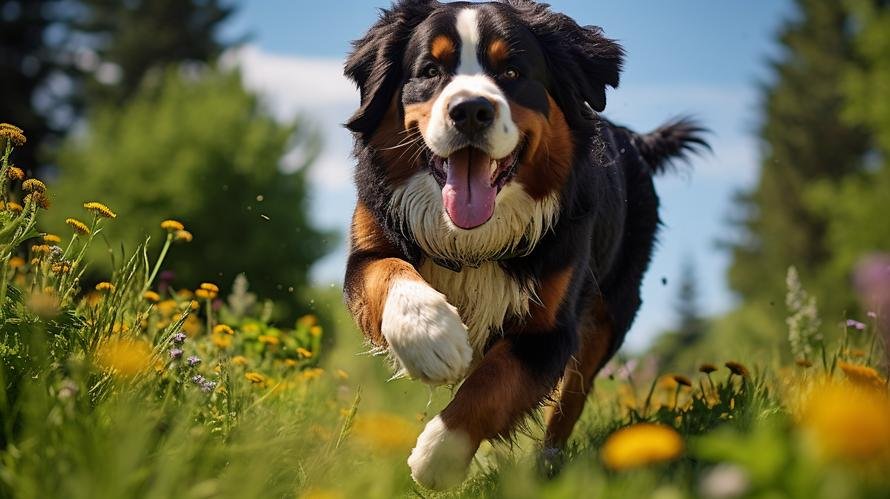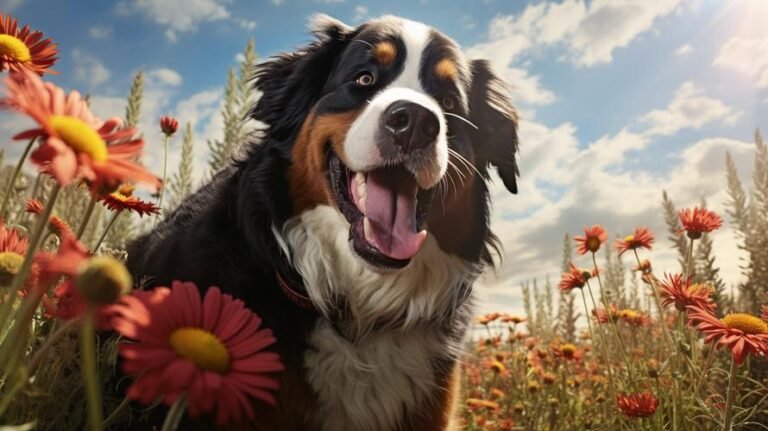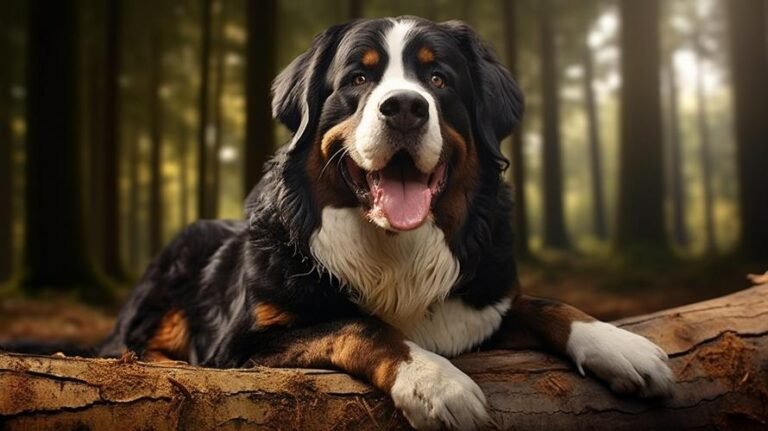Imagine sharing your home with a fluffy, giant dog the size of a small pony. Having a four-legged friend who gives you a sense of security like an imposing bodyguard but also offers the companionship of a faithful friend. Picture a dog with a coat as soft as a teddy bear but as strong as a Swiss soldier. Sounds intriguing, right? Meet the Bernese Mountain Dog—a marvel of nature adored for its impressive stature, charming tri-color coat, and enchanting personality.
Bernese Mountain Dogs, fondly called “Berners,” came into the limelight due to their multi-purpose utility and nobility in the Swiss Alps. Their daily to-do list included herding cattle, pulling carts, and serving as a steadfast watchdog. These Vikings of the canine world never cowered from tough tasks, executing them with an inherent elegance.
Today, the thought on everyone’s mind when they encounter these colossal yet adorable creatures is, “Are Bernese Mountain Dogs aggressive?” As a veterinarian with ten years under my belt, I’ve dealt with virtually all dog breeds, Berners included. I’m here to shed some light on the complexity surrounding this question and to dissolve any misconceptions along the way.
Aggression, according to the American Veterinary Society of Animal Behavior, is characterized by hostile, violent behavior, stemming from a dog’s intent to do harm. So, when we examine the question, “Are Bernese Mountain Dogs aggressive?” We must remember that like humans, dogs are individuals and their behavior can be influenced by numerous factors. Aggression should not be labeled as a breed-specific trait.
Berners, as a breed, are known for their sweetness and affability. Ask any Berner parent, and they’ll tell you about their dog’s gentle nature, how they unknowingly charm everyone they meet, their unique way of empathizing with human emotions, and their radiant happiness reflected through expressive, dark-brown eyes. Simply put, these dogs are the embodiment of the Latin phrase, “Mens sana in corpore sano,” a sound mind in a sound body.
However, any dog, regardless of breed, may exhibit hostility or aggression when untrained, improperly socialized, or badly treated. Thus, if your aim is to ensure your Bernese Mountain Dog grows up to be the gentle giant they’re known to be, take a look at the following pointers:
- Socialization: Expose your Berner to different environments, experiences, and people early on. This helps them develop a well-rounded personality and promotes healthy responses to various situations.
- Training: Begin their training as soon as possible, while they’re still a puppy. Berners are known for their intelligence and trainability, but remember—patience and consistency are key.
-
Proper Care: Like any other dog, Berners require proper nutrition, regular veterinary check-ups, and plenty of exercise. A healthy dog is a happy dog, and a happy dog is less likely to exhibit hostile behavior.
-
Positive Reinforcement: Reward good behavior with treats and praises, but never resort to harsh physical punishments when they make mistakes. This could potentially trigger aggression in your otherwise good-natured Berner.
-
Respect Their Space: Yes, they’re large! However, Berners still need their personal space and privacy respected. Coercing them beyond their comfort zone can sometimes lead to unwanted reactions.
So, are Bernese Mountain Dogs aggressive? When raised with love, proper training, and care, they’re far from it! These dogs are an embodiment of loyalty, friendliness, and love that’s as vast as the mountain range they hail from.
To wrap it up, I’ll leave you with this beautiful quote from Roger Caras, “Dogs are not our whole life, but they make our lives whole.” Bernese Mountain Dogs, with their life-enriching qualities, play their part to perfection in this sentiment. So, if you’re considering bringing a Berner into your home, go ahead. They may be giant, but their hearts are even bigger. Their love is vast and engulfing like a never-ending mountain range. And while they may be powerful and imposing, their gentleness is what truly defines them. These dogs are not just pets, they’re a joyous adventure waiting to unfold.



